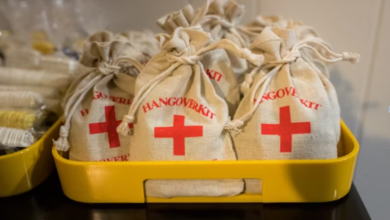
BPJS Health Insurance: What Surgeries You Still Have to Pay For
Indonesia’s BPJS Kesehatan (National Health Insurance) has been a vital support system for millions of citizens, offering access to affordable healthcare. From the report published on the pafikutaikab.org page however, many people mistakenly believe that all medical treatments including surgeries are completely free under BPJS coverage.
In reality, there are several types of surgeries and medical procedures that are not fully covered by BPJS, especially if they fall outside medical necessity or involve special requests. Understanding these exceptions can help patients avoid unexpected out-of-pocket expenses.
1. Cosmetic or Aesthetic Surgeries
BPJS only covers procedures that are medically necessary to restore health or function. Surgeries performed purely for cosmetic or aesthetic reasons, such as rhinoplasty (nose reshaping), liposuction, or breast augmentation, are not covered.
According to Dr. Sinta Widjaja, a public health policy expert, “BPJS focuses on curative and preventive care, not aesthetic improvement. If the purpose of surgery is beauty enhancement, patients must pay the full cost.”
However, reconstructive surgeries due to accidents, burns, or congenital defects — such as cleft lip repair are covered since they are medically justified.
2. Elective or Non-Urgent Surgeries
Some patients choose to undergo surgery for convenience or scheduling reasons rather than urgent medical need. These elective procedures are not automatically covered.
For example, removing a benign lump that doesn’t affect health or opting for a particular delivery date through cesarean section (without medical indication) may not be reimbursed.
Dr. Sinta added, “The BPJS system evaluates every procedure’s urgency. If it’s not life-threatening or medically required, coverage can be denied.”
3. Surgeries Performed Outside BPJS Network Hospitals
BPJS works under a referral system, meaning patients must follow proper referral stages — from primary clinics (faskes tingkat pertama) to hospitals (faskes tingkat lanjutan).
If patients choose to go directly to a private or non-partner hospital without a referral, BPJS will not cover the surgery cost.
“Unless it’s an emergency that endangers life, any self-referred treatment outside the BPJS network will result in personal charges,” Dr. Sinta clarified.
Read Also: Why E-Waste Recycling Is a Growing Business Need
4. Surgeries Requested by Patient Preference
If a patient demands specific doctors, rooms, or surgical techniques beyond standard BPJS coverage, the additional cost must be borne personally.
For instance, choosing a VIP room or requesting laser-based surgery instead of a standard procedure typically incurs extra fees. BPJS only funds the basic medically approved procedure.
5. Non-Medical Procedures or Alternative Treatments
BPJS does not cover operations or treatments without strong scientific evidence — including certain traditional, holistic, or experimental procedures.
If a patient opts for alternative surgery or requests a treatment not recommended by a BPJS-certified doctor, the expenses fall outside the program’s responsibility.
Key Takeaway
BPJS Health remains a powerful tool for equal healthcare access in Indonesia. However, patients should remember that coverage applies only to medically necessary, evidence-based, and properly referred procedures.
Before undergoing any surgery, it’s best to consult your BPJS provider or hospital to confirm whether the procedure is covered.
As Dr. Sinta concluded, “BPJS guarantees basic healthcare for everyone, but patients still need to be informed. Knowing what’s covered helps avoid confusion and ensures fair use of the system.”
Source: Pafikutaikab



